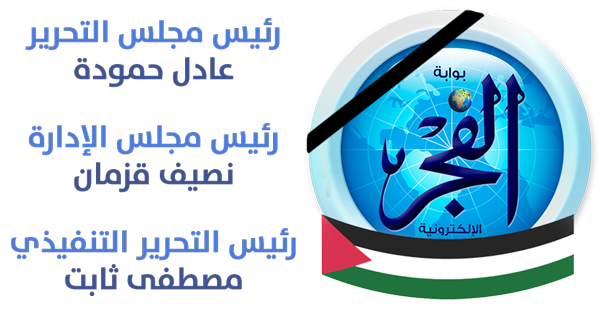هارتس : وثائق امريكية " كان بامكان اسرائيل إنتاج أعداد صغيرة من الأسلحة النووية في عام 1973”
بعد حرب يوم الغفران عام 1973 ، تشير تقديرات الاستخبارات الاميركية توازن الاسلحة التقليدية كان في صالح العرب ، مما أدى إلى إسرائيل النظر في تهديدهم بالسلاح النووي.
خلال حرب يوم الغفران ، يمكن أن تنتج إسرائيل عددا صغيرا من الاسلحة النووية. ، وتقدر الاستخبارات الأمريكية أن ميزان الأسلحة التقليدية كان في صالح العرب ، بعد النزاع فإن إسرائيل تنظر الى تهديدهم بالسلاح النووي ، وربما حتى باستخدامة لهم.
ويمكن الاطلاع على هذه التفاصيل في وثائق حول الحرب العربية الاسرائيلية عام 1973 ، صنفت عن طريق تقسيم تاريخ وزارة الخارجية الأميركية.وتم العثور على المعلومات الموجودة في منشور يعرف باسم العلاقات الخارجية للولايات المتحدة .
صفحات ما يقرب من 1300 تصف حرب أكتوبر والجهود المبذولة لوضع حد لها. من بين الشخصيات الرئيسية هي الرئيس الامريكى ريتشارد نيكسون ووزير خارجيته ، هنري كيسينجر ، ورئيس الوزراء غولدا مائير ، ووزير الدفاع موشي دايان والرئيس المصري أنور السادات والملك حسين عاهل الأردن ومنظمة التحرير الفلسطينية ياسر عرفات. عقدت إدارة نيكسون تبادل سرية مع عرفات عن طريق رئيس مجموعة أيلول الأسود وعرفات اليد اليمنى ، وعلي حسن سلامة.
على الرغم من معرفة العديد من التفاصيل حول إخفاقات إسرائيل السياسية والعسكرية والاستخبارات في الحرب ، والافراج عن الوثائق يضيف الختم الرسمي للحقائق غير مريحة كثيرة. على سبيل المثال ، فإن وثائق التحدي الغموض النووي الاسرائيلي.
في 27 نوفمبر 1973 ، بعد حوالي شهر من الحرب ، التقى نيكسون وكيسنجر مع زعماء الكونغرس.زعيم الاغلبية الديمقراطية في مجلس الشيوخ مايك مانسفيلد ، سأل : هل مصر وإسرائيل لديها القدرة على صنع أسلحة نووية؟
أجاب كيسنجر : اسرائيل لديها القدرة على جعل أعداد صغيرة غير مصر ، ونحن لا اعتقد ان السوفيتى قد سمح لهم بالدخول اذا كانت اسرائيل تلوح بالأسلحة النووية ، فإن السوفيتى والتصدي له وسيكون خطيرا جدا بالنسبة لاسرائيل.
في اليوم الأخير للحرب ، 24 اكتوبر ، أصدرت وكالة الاستخبارات في البنتاغون وزير الدفاع تقييما سلبيا حول قدرة إسرائيل على ضرب الجيوش العربية في المستقبل.
وكتب محللون دوليين فان الاسرائيليين لم يعد يمكن أن يكون واثقا من الانتصارات وسريعة حاسمة في المستقبل ،.الذي كان يعتقد خطأ عدة أشهر في وقت سابق ان قوات الدفاع الاسرائيلية من شأنها أن تحبط بسهولة العربية الجيوش جيد ولكن الذين خرجوا من الصراع الحالي ،
وفقا للتقييم ، كان الجيش الإسرائيلي لم يعد كافيا لضمان أمن إسرائيل في المستقبل. من بين الخيارات المتاحة هي : ضمانة دولية للحدود إسرائيل ؛ ضمانة الولايات المتحدة من جانب واحد العسكري لتلك الحدود ، أو التصريح العلني الاصرار (الاسرائيلي) لاستخدام الأسلحة النووية لضمان سلامة أراضيه ، وكتب المحللون.
الخيار الأخير ، وفقا لتقدير وزارة الدفاع ، والاعتماد على افتراض أن إسرائيل لديها أو قريبة للحصول على اسلحة نووية ، وان اسرائيل سوف تسعى الى ردع الهجمات العربية في المستقبل من خلال استخدامها تهديد ضد اهداف مثل القوات العربية ، والمدن والموانئ والأماكن المقدسة ، والسد العالي في أسوان يمكن أن تستخدم لردع هجمات مسلحة في المستقبل. مثل هذه السياسة الاسرائيلية لن المعلن في جميع أنحاء العالم بمناسبة المعارضة ، إضافة إلى أن الولايات المتحدة ، لذلك ، تجد أنه من الصعب للغاية أن ينضم إلى السياسة الإسرائيلية. وفي الوقت نفسه ، وربما كان العرب على استعداد للهجوم ، على الرغم من التهديد الرادع ، وهم قد تفترض أن (1) ان اسرائيل لن تنفذ هذا التهديد ، (2) أنها لا يمكن أن تنجح حتى لو ان الجنود الاسرائيليين استخدموا اسلحة نووية ، وربما بمساعدة الآخرين وينبغي أن وسائل غير تقليدية خاصة بهم مثل الأسلحة الكيميائية أو البيولوجية ، أو (3) انهم سوف تجني فوائد جمة من ردود الفعل الدولية الناتجة اسرائيل تنفيذ تهديداتها .
'Israel could produce small numbers of nuclear weapons in 1973,' say newly released U.S. documents
During the Yom Kippur War, Israel could produce small numbers of nuclear weapons. After the conflict, U.S. intelligence estimated that the balance of conventional weaponry was in the Arabs' favor, so Israel would consider threatening them with nuclear weapons, and possibly even using them.
Such details can be found in documents on the 1973 Arab-Israeli war, classified until Thursday's release by the U.S. State Department's history division. The information is found in a publication known as Foreign Relations of the United States.
The nearly 1,300 pages describe the October war and the efforts to end it. Among the key figures are U.S. President Richard Nixon, his secretary of state, Henry Kissinger, Prime Minister Golda Meir, Defense Minister Moshe Dayan, Egyptian President Anwar Saddat, King Hussein of Jordan and PLO leader Yasser Arafat. The Nixon administration held clandestine exchanges with Arafat through the head of the Black September group and Arafat's right-hand man, Ali Hassan Salameh.
Even though many of the details about Israel's political, military and intelligence failures in the war are known, the release of the documents adds an official seal to many uncomfortable facts. For example, the documents challenge Israel's nuclear ambiguity.
On November 27, 1973, about a month after the war, Nixon and Kissinger met with congressional leaders. The leader of the Democratic majority in the Senate, Mike Mansfield, asked: Do Egypt and Israel have the capability to make nuclear weapons?
Kissinger replied: Israel has the capability to make small numbers. Not Egypt. And we don't think the Soviets have put them in. Should Israel brandish nuclear weapons, the Soviets would counter it and it would be very dangerous for Israel.
On the final day of the war, October 24, the Pentagon's Defense Intelligence Agency issued a negative assessment about Israel's ability to beat Arab armies in the future.
However well they come out of the present conflict, the Israelis can no longer be confident of quick, decisive victories in the future, wrote the DIA analysts, who had mistakenly believed several months earlier that the Israel Defense Forces would easily defeat the Arab armies.
According to the assessment, the IDF was no longer enough to assure Israel's security in the future. Among the options are: an international guarantee of Israel's borders; a unilateral U.S. military guarantee of those borders; or a public declaration of Israeli determination to employ nuclear weapons to guarantee its territorial integrity, the analysts wrote.
The last option, according to the Pentagon's assessment, relied on the assumption that Israel has or is soon to acquire nuclear weapons, and that Israel would seek to deter future Arab attacks by their threatened use against such targets as Arab forces, cities, ports, holy places, and the Aswan High Dam could serve to deter future armed attacks. Such an avowed Israeli policy would occasion world-wide opposition. The U.S. would, therefore, find it extremely difficult to associate itself with such an Israeli policy. Meanwhile, the Arabs might be willing to attack, despite the deterrent threat. They might assume that (1 ) Israel will not carry out the threat, (2 ) they could succeed even if the Israelis used nuclear weapons, perhaps with the aid of other unconventional means of their own such as chemical or biological weapons, or (3 ) they would reap important benefits from the resultant international reaction should Israel carry out its threat.










